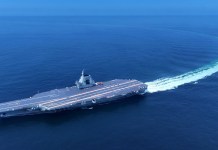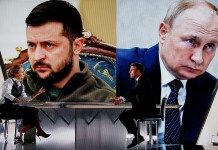Russia is not planning to create a military alliance with China, Russian Foreign Minister Sergey Lavrov said in an interview with Rossiya-24 TV channel on Friday. “Neither Russia nor China are planning to create a military alliance,” Russia’s top diplomat said.
Turkey Begins Constructing MILGEM-Class Naval Warship For Pakistan
Lavrov stated that Russia’s ties with China “have never been at such a good and confidential level in all areas, including economy, as a foundation for relations and the sphere of ensuring Russian and Chinese interests on the global arena.”
After Russia and China normalized their ties in 1989, both nations discarded the idea of alliances as only increasing tensions in various parts of the world. They carefully avoided using the word “ally” in regard to each other until recently, when Russia began using it quite informally.
Saudi Money, US Weapons, Israeli Intelligence Fuelling Arab NATO – Iran
China continues to dodge the term at an official level, favouring official wording about an “all-encompassing partnership and strategic interaction,” and insisting that relations with Russia are “the best they have ever been.”
Despite strict adherence to the term “strategic alliance” over a military one, since 2018, defence cooperation between the two nations has reached a new level. It would appear that Russia began pushing for an advance in military partnership soon after the outbreak of the conflict in Ukraine in 2014
In 2017, Russia initiated the signing of a three-year road map for bilateral military cooperation. For China, the crunch apparently came in 2018, with the start of its full-scale confrontation with the United States, including the trade war launched by U.S. President Donald Trump.
India Extends $1 Billion Line of Credit To Russia For Development Of Far East Region
This new level of defence cooperation is essentially the full-fledged expansion of cooperation to cover strategic arms. The Russian leadership has admitted that it helped China to create a missile launch detection system, and for any country, this is the most critical and delicate component in the strategic nuclear forces control system.
The new level can be expected to include cooperation in other sensitive fields, such as strategic missile defence, hypersonic technology, and the construction of nuclear submarines. Joining forces in these areas is mutually beneficial for Russia and China in both financial and technological terms while posing an insignificant risk to national security.




